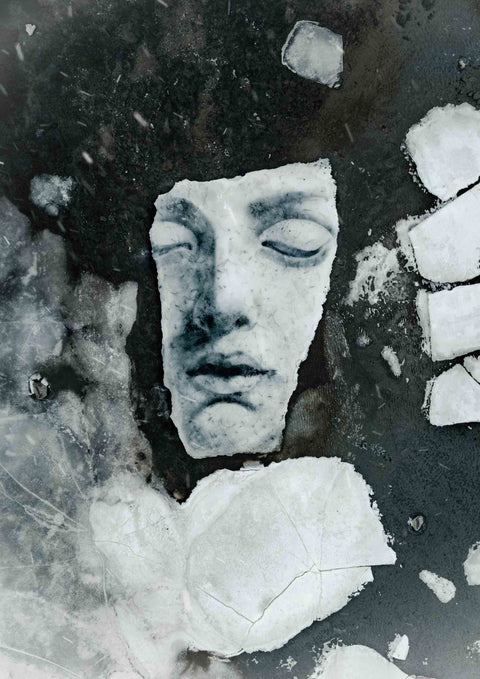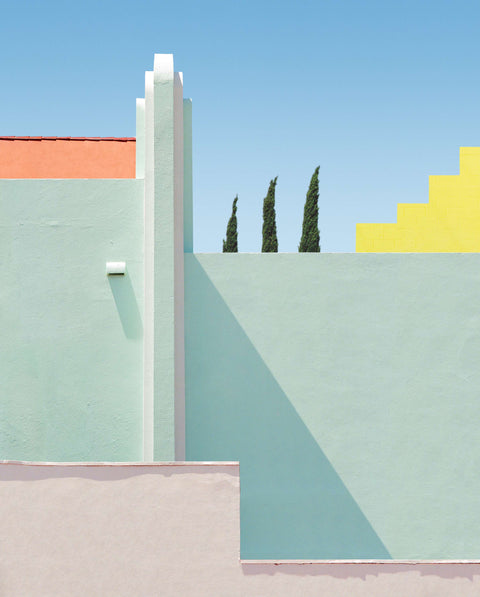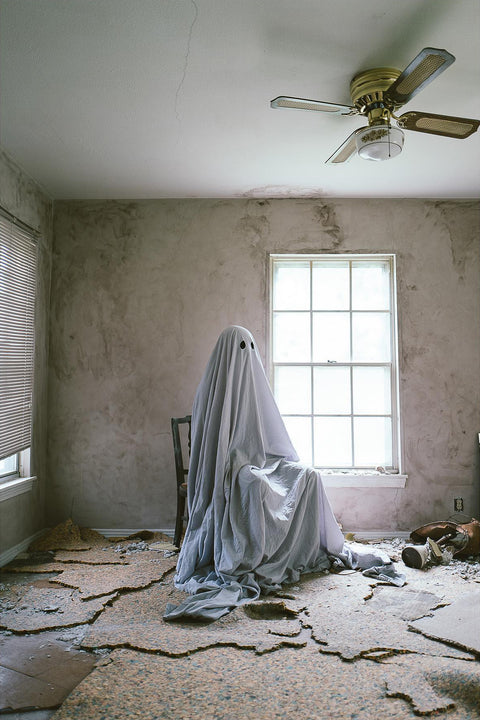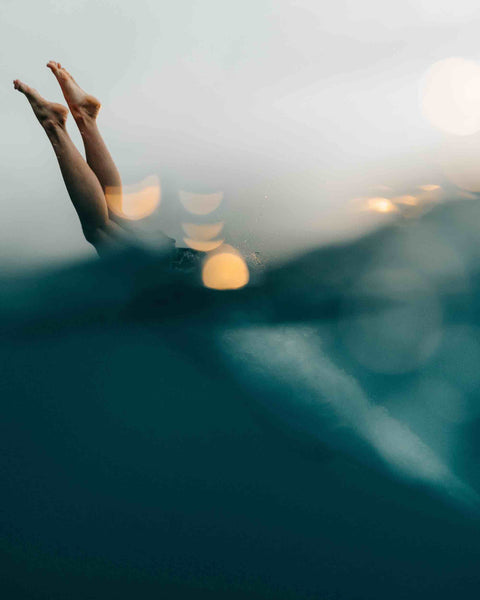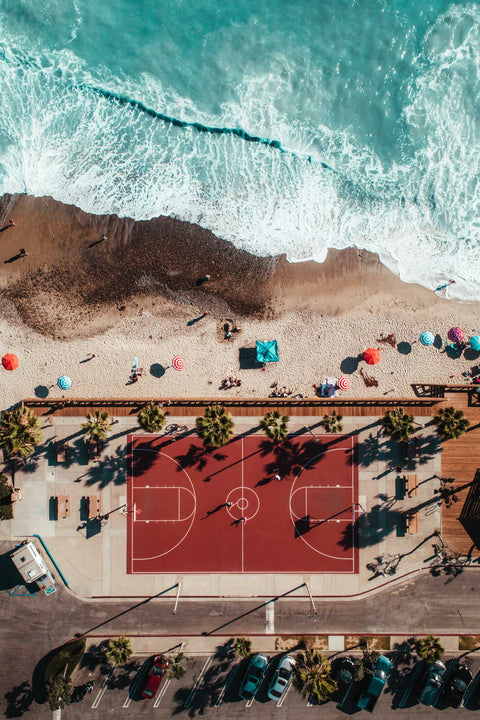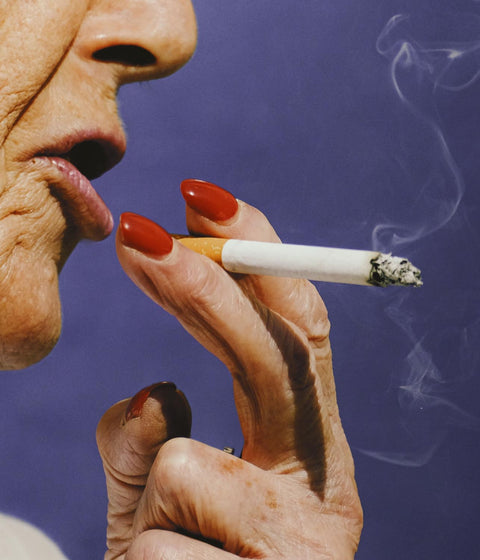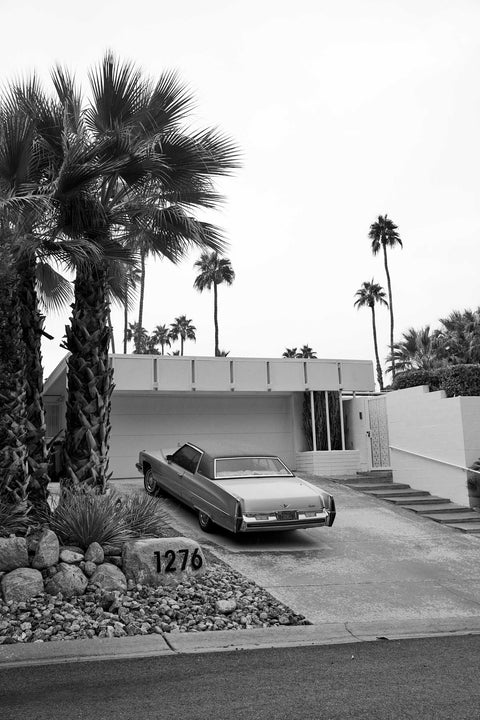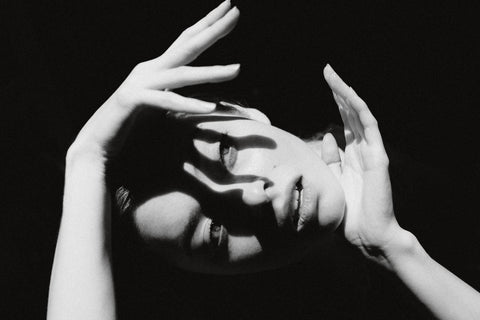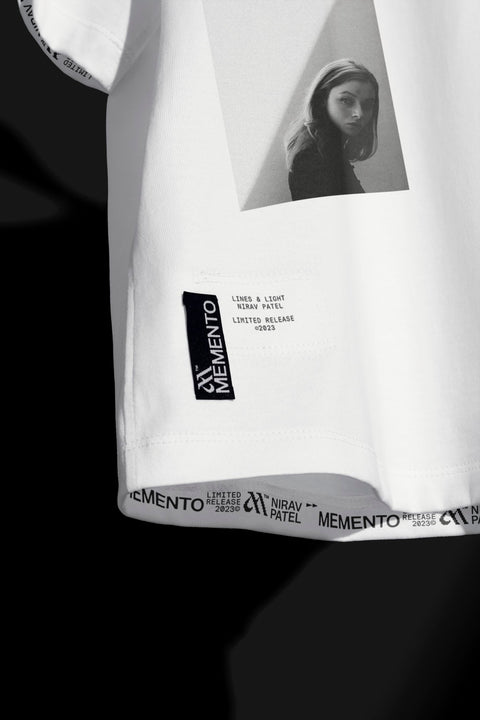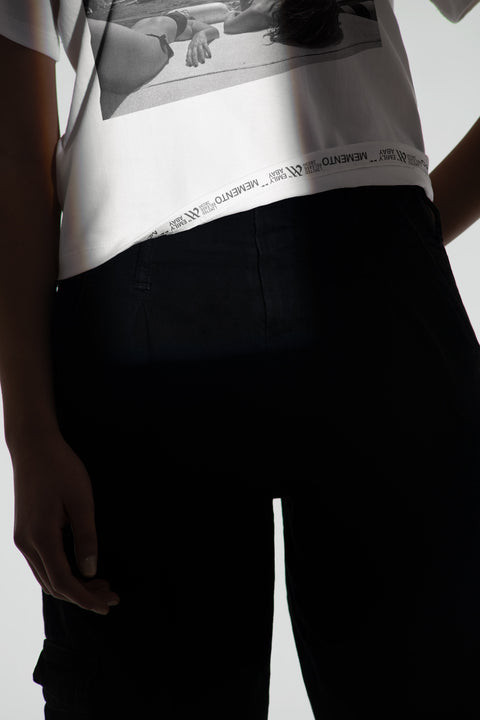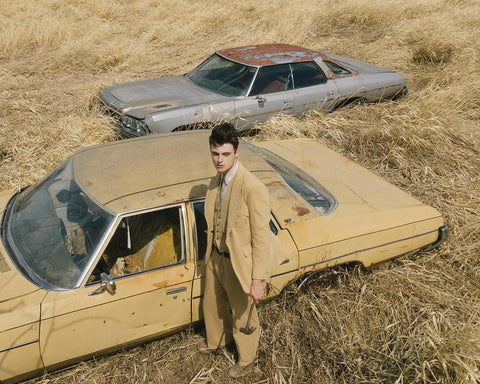
BRENDON BURTON
Memento sat down with Brendon ahead of the Vacancy - #BB-DROP01 to explore his perspective as a photographer. Plus, his thoughts on Memento’s mission to create elevated, offline alternatives to social media.

What first prompted you to get into photography?
I guess it might be weird to say, but boredom. I mean, loneliness and boredom, and just a lack of alternatives. I grew up in a very small town and the summer before I got my drivers license, I didn't have anything to do. Every summer I didn’t have anything to do because there was just nothing you know? I grew up on a farm. So it's kind of like I don't even know what teenagers would do back then, you know - like go to the mall? Literally the only thing that I could do with my friends was just walk around. And I started shooting film photography because I thought it would be fun. And I'd seen people shoot on disposable cameras through the internet that was very early on… so I started shooting film and then I taught myself how to develop the film and it just kind of became a way to document what I was doing. But that gradually developed into documenting how unique the environment is in rural Americana. The more I traveled the more I learned and the older I got, I realized that what originally made me so bored and what made me so uninspired ironically turned out to be the most inspiring aspect of my work. It's about examining these dead pockets of the United States and looking at the bizarre quality of cultural isolation that happens in those areas. The United States is so big that the towns that get kind of left behind or removed from modernity, become this time capsule and a way to time travel in a weird way.

“The more I traveled the more I learned and the older I got, I realized that what originally made me so bored and uninspired ironically turned out to be the most inspiring aspect of my work.”
I think that photography became an excuse to continue to explore. Whenever I go to a place now I think about the Vivian Maier, quote when someone asked her what she does for a living. She responded that she is kind of a spy and I feel somewhat the same way and it is just fun to go to a place and blend in and just be. To be observant about everything and it almost feels archaeological or that I'm collecting something. It satisfies that curiosity in me to shoot it - to collect it.
Building from what you just shared - do you have anything to add on what motivates you as a photographer today or how those motivations may have changed over time?
I think the only thing like that really has changed in a lot of ways is that I've become a bit more documentarian and I've tried to interweave fiction and nonfiction and make that line more blurred. I really like the idea of being unable to tell what is real and what is not. My early work was more focused on creating a world and creating this kind of dreamy quality. As I kept exploring deeper and deeper into the recesses of the United States, I discovered that truth is stranger than fiction and a lot of the time the stuff that I was stumbling across and finding on my own was telling the story for me. And leaving that up to interpretation from the audience is what made it so much more fascinating. I'm mystified by what I'm finding and stripping that of the context of actually being there in that moment and just giving them one image, starkly, allows for so much more story to bloom from the audience's mind. I really love that and I love the feedback that I get from people. It is always rooted in such curiosity - how they tell their own stories with my work - and I love hearing it.
“As I kept exploring deeper and deeper into the recesses of the United States, I discovered that truth is stranger than fiction.”

As you’ve shifted from establishing a particular world or scene to this more documentarian realization of how truth is stranger than fiction, I’m curious what comes first for you? The idea of a project or individual photographs that suggest a concept?
I think that a lot of artists like to think that they can kind of have that epiphany moment where they discover a project that they want to pursue. Some people can and are very good at it and I’m personally unsure of what that requires a good understanding of… maybe that just requires going to art school to understand the kind of the ins-and-outs and the eccentricities of what a good art project could be.
But my favorite thing that I've discovered is just going out and shooting without any sort of like directive or any sort of limitation on myself and then finding that linear quality in the work afterwards. Then tracing the thread throughout as you notice the symmetry in images and as you notice reoccurring themes.
I find that it's just so much easier to just go and let it happen and experience it and then assemble it later because the more expectation I put into it and if I'm too constructed with myself, I find that I'll always end up disappointing myself. So I have found the most satisfaction in experiencing it and then discovering the actual artistic story and visual story afterwards.
Do you have what you'd call a photographic style or genre?
I don't know. I mean, I think that it's difficult for the artist to kind of determine what their style is a lot of the time. But it's helpful to have others examine it and to mention keywords. It goes back to what we were talking about with the artist statement prior to the interview, where in a lot of ways you kind of feel deceptive and like you’re creating this narrative about why you’re doing this and what it's all for.
But I guess that my style would be considered fine art. Fine art - documentary narrative? It's changed and I think it's fluid. Sometimes I'll have projects that I assemble like American Poetry that are more purely documentarian. [For that project], I was like, oh this is weird that this is the perfect encapsulation of this time period, where it was Trump's presidency. So it was much more political than my other work. And it was much more focused on public narratives and outsider art. In a way I was documenting the art of others - whether or not they saw it as art and whether or not other people would consider it art is subjective - but the work itself I think was a dramatic shift for me from Western Gothic and Vacancy, which is what this image is [for the first Memento drop]. Vacancy was much more, ‘oh this is a cool scene, what would it look like if there was some sort of mysterious figure in it’, you know? I would assemble it on the fly and I would start to feel like this looks like a really cool painting. Or this looks like something that I imagined in my head and I made it come true and I think that that's the satisfaction of that. As I continue to explore things, I think I'll continually go back to fine art and I'll always go back to that feeling that I was able to make a story all by myself. It can be documentary, it can be fine art and all the random stuff in between.

Why do you think fashion can be a powerful medium for photography and how has Memento influenced that opinion?
I think that fashion is the simplest form of self-expression, a lot of the time. While I don't see myself as a fashionable person or someone that is particularly ‘good at fashion’ - I think that I have a very high admiration for it. Part of the biggest influence and inspiration for me is telling stories through setting and clothing is part of that.
So, I think, at the risk of sounding too art-schooly - that by putting photography on clothing and intersecting those two art forms - it allows for a lot more and the intersection enhances both mediums. It's interesting to turn a garment into a gallery. It's interesting because people collect images all the time, that's just the time period that we live in now. I think that people are obsessive about it, that's why Pinterest exists, that's why people have mood boards , that’s why people are on social. It's often the genesis moment for many people's creativity. We are visual people and will naturally be drawn to images. They will set it as their wallpaper and they'll set it as all of these things that they can see frequently. They bookmark it, they share it, they'll put it on a board.

But it's even more personal to wear it. And that's a new thing. That's definitely a new thing because in the art world, I think it was seen as.. corny(?)… to have a graphic tee. But I think that if you're doing it in a way that's stark and honest and it's not just another piece of merchandise, it's a lot more impactful. And I think that it would mean a lot more to not only the artists but the person that appreciate the art by wearing it in the first place.
“If you're doing it in a way that's stark and honest and it's not just another piece of merchandise, it's a lot more impactful… In putting it on someone like a gallery, [it’s] I appreciate this art and what better way to share that.”
Also, it opens it. It opens up the audience a lot more. And I think that a lot of people [looking at], Herring or Warhol, thought of it as some sort of like money grab thing, but in reality it’s accessibility of art too because I think that's the biggest downside to attempting to be in any sort of art world - is that it can be such an exclusionary experience. And if you want to be taken seriously, you have to make it more reserved to only an exclusive group. But I think in putting it on someone like a gallery, that's the way everyone can express themselves. It's not a matter of it being - ‘does this fit my living room?’ or ‘does this fit this setting that I'm creating?’ It just simplifies it. Like I appreciate this art and what better way to share that.
When getting your work out into the world, how do you think about the balance between offline and online mediums? Whether it be prints, books or your presence through social media and your website, etc.
Yeah, I think the online presence originally is what inspired me. And it's originally what kind of like opened my eyes to a lot of art and it gave me a lot of learning experiences through it. But I think that, as it's progressed and as it's become more prevalent, it's become more of a necessary evil for artists to have a presence on the internet and to have like this online persona and audience to showcase the work. It's become the only way to do it - or rather it's become the only universal way to do it. And even the platforms in which you can do it on, have become more limited. And through like the process of fighting against the kind of automation and fighting against - ‘the buzzword’ - the algorithm, you know, it's been daunting and exhausting and it does feel like you have to kind of sacrifice a big part of yourself to make any dent at all or to like gain any sort of audience. It feels like I have to be somewhat facetious on the internet in order to maintain the mystery or whatever, whatever you would call it - “the persona”. That's the worst thing, is that on the internet, you have to be a person. You have to have some sort of personification of yourself in order for people to kind of respond to it in order for it to be picked up. I mean, I'm like a child of the Internet, I will not deny that. I'm not like some sort of purist. As I grew up, the only reason I'm doing what I'm doing now is because of the internet, you know? And so I'm endlessly grateful for it.
“The first thing that people will miss about certain mediums when they become outdated, is the things that bothered them about them in the first place. Like static on a record, the grain in film. [Today] photos can so often be viewed in a sterile setting.”
But I think that seeing your work in person, like physically for the first time - which has been a relatively new thing for me - printing it, publishing it, putting it on apparel like this. It's kind of this thing that I’m sure many artists felt before the internet that is not as common anymore. And it's such a gratifying experience. To see it in the physical world. Especially photography you know, because it's like you're already pulling the world in as your reference point and you're already utilizing what’s real to tell a story. Putting it on the internet can feel like you're just throwing it into the abyss of people that are interested in it, but then like pulling it back out and then physically seeing it and being like, wow, I did this. I made this. It's tangible. That's what appeals to people about film too. It’s that Brian Eno quote - the first thing that people will miss about certain mediums when they become outdated, is the things that bothered them about them in the first place. Like static on a record, the grain in film. [Today] photos can so often be viewed in a sterile setting.

VIEW BRENDON BURTON VACANCY #DROP01

